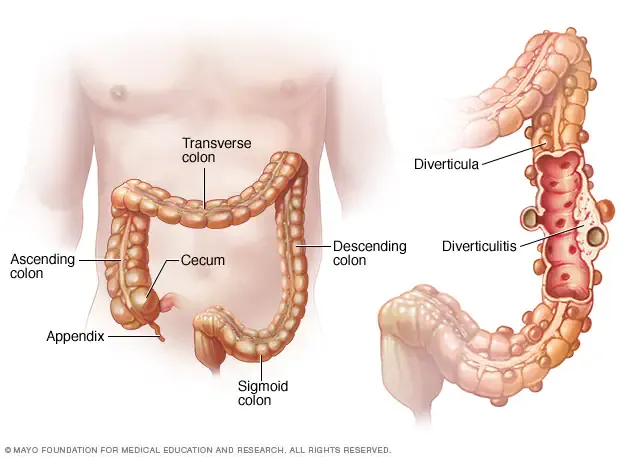The large intestine, also known as the colon, is part of the lower gastrointestinal (GI) tract. It has several functions but is mostly responsible for absorbing water and digesting food waste.
Any symptoms related to the colon or rectum may prompt a referral to a colorectal surgeon. These symptoms include, but are not limited to, abdominal pain, bleeding and irregular bowel movements.
Certain colorectal diagnoses may require surgery. At Houston Community Surgical, our surgeon has received specialty training and board certification in colorectal surgery and is prepared to discuss treatment options with you during your visit.
1. What is Colorectal Surgery?
Colorectal Surgery is a surgical subspecialty that focuses on the colon, rectum, and anus, also known as the lower GI tract. Examples of procedures performed by a colorectal surgeon include removal of a portion of the colon) for disease processes such as diverticulitis, colorectal, cancer, endometriosis of the bowel, and inflammatory bowel disease. Colorectal surgeons also perform colostomy reversals, J-pouch surgery, and colonoscopy and treat anorectal diseases (also known as proctology) such as hemorrhoids, fissures, and fistulas.
2. How is Colorectal Surgery different from General Surgery?
Colorectal Surgeons receive additional training after completing residency training in general surgery, According to the American Cancer Society, the chances of having Colorectal Cancer are about 1 in 23 (4.3%) for men and 1 in 25 (4.0%) for women in the United States. While general surgery involves a wider breadth of procedures, colorectal surgery focuses specifically on disease processes and procedures involving the lower GI tract (colon, rectum and anus).
3. What are the risks and complications of Colorectal Surgery?
While all surgical procedures carry a risk of complications, the benefit of an operation must always outweigh the possibility risks. Your surgeon should always explain the risks and benefits of any procedure before signing a surgical consent form. All surgical procedures carry a risk of pain, bleeding, infection and injury to nearby organs and body parts. Risks specific to colorectal surgery include:
- Injury the to colon or small bowel
- Leaking around new bowel connections (aka anastomotic leak)
- Intraabdominal infection or Post-operative
- Post operative ileus (temporary paralysis of intestinal
- Urinary retention
- Blood clots (aka deep vein thrombosis, DVT)
4.What are the guidelines for Pre and Post Care of Colorectal Surgery?
Preoperative Care:
- Do not eat after midnight.
- No smoking or drinking.
- Be sure to follow doctor's orders and take all medications as prescribed.
Postoperative Care:
- Any questions or concerns after surgery, be sure to ask.
- You must walk at least 5 times a day and eat all the meals sitting in a chair.
- We encourage patients not to lift anything heavier than 20 lbs. for 4-6 weeks after surgery. Patients can return to normal activity sooner after minimally invasive surgery.
- There are usually no dietary restrictions unless specified by your surgeon.
- It is usually ok to shower after the first 48 hours post-op.
- No soaking in the tub for at least 2 weeks after surgery.
5.How many hours does colorectal surgery take?
Depending on the diagnosis and the operation proposed, a typical colorectal procedure can take anywhere from 1 to 5 hours.
Anorectic procedures are less involved and take approximately 15-30 minutes. Colonoscopies take 15 minutes to an hour depending on what is found during the procedure.
6. How long is a hospital stay after colorectal surgery?
The field of colorectal surgery has evolved over the past decade to incorporate an Enhanced Recovery After Surgery (ERAS) protocol. The ERAS protocol has been shown to reduce post operative pain, surgical site infections and hospital length of stay. With the addition of minimally invasive surgery, patients can often be ready to leave the hospital within 24 hours after surgery. Other situations may require a hospital stay up to 7 days. Most patients will be stable for discharge between 2-5 days after surgery.
Have more questions? Sign up for our email list. We will provide office updates, educational information, and resources.
Houston Community Surgical is a specialty practice that provides general and colorectal surgery services to the greater Houston community. Learn more about how our practice can help you.
Contact Info
Address:
427 W. 20th Street, Suite 710, Houston, Texas 77008
Call/Text: 832-979-5670
Fax: 832-346-1911
Quick Links
All Rights Reserved | Houston Community Surgical | Privacy Policy
Website created by True Digital Marketing





